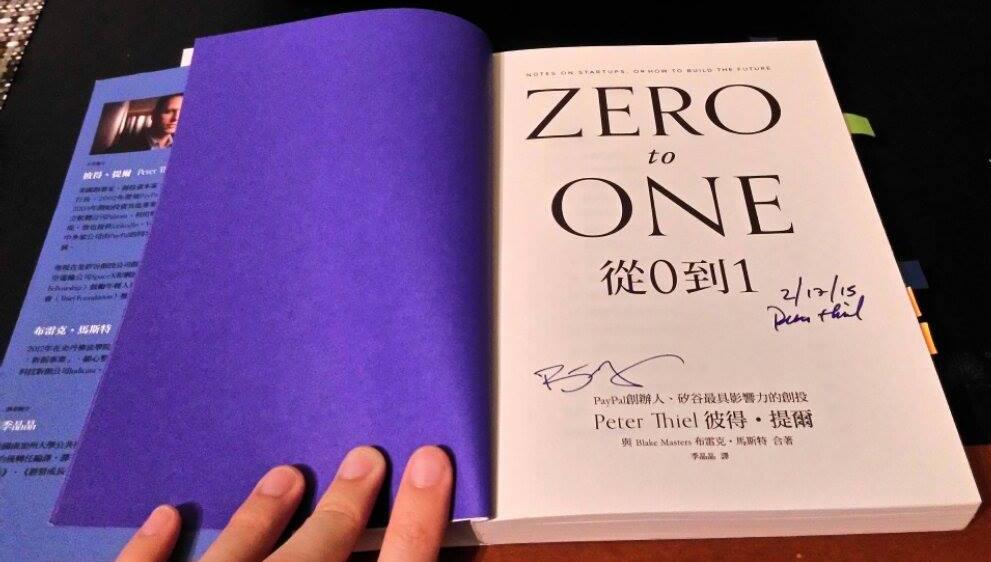
Book
-
從 1 到 n,只是複製別人的做法 → 全球化
從 0 到 1,則是創新 → 科技的進步 -
「有什麼是你跟其他人有不同看法,但是你覺得很重要的事實?」
- 商業版:「哪些有價值的公司還沒創立」
-
新創產業運作的原則就是必須和其他人合作完成工作,而且組織要小到能讓所有事情順利運作
-
大膽冒險比無聊瑣碎好
- 壞計畫比沒計畫好
- 競爭市場賺不到錢
-
銷售與產品同樣重要
-
只有獨佔者能考慮賺錢以外的事
完全競爭下,企業會專注在今天的利潤,無法規劃場遠的未來
只有一件事可以讓企業超越求生的日常廝殺,創造新的東西,就是獨佔利潤 -
在完全競爭下,長期來看,沒有公司可以得到經濟利潤
有利可圖則新公司加入,促使大家降低利潤
反之,若無利可圖,則公司倒閉,利潤恢復。最終到無利潤的平衡
只有獨佔企業才能達到利潤最大化
如果想要創造、並長久留住價值,不該建立一個沒有差異化的商品模式 -
獨佔企業不會扼殺創新。新的獨佔事業會帶來改變
長達數十年的獨佔利潤提供強大的發明誘因
獨佔可以讓發明持續,因為利潤讓他們得以擬定長程計畫
在競爭的狀態下,公司無法花時間再創新的計畫 -
不要執著於競爭,競爭會讓大家在毫無機會的時候幻想機會存在
如果這場仗不值得打,每個人都是輸家 -
所謂一家有價值的企業,不但必須成長,還必須能夠持續成長
這事業 10 年後還在嗎?
許多創業家都僅專注在短期成長
藉口是「成長容易衡量,但持續就很難了」。 -
你可能聽過創業的「先發優勢」
但這只是種策略,而不是目標
真正重要的是能在未來產生現金流
如果有其他人會追上並超越你,就算你是第一個做的人也不會有好處 -
「做什麼不重要,做得好就行」這可能不是正確的
要做什麼很重要,你該全神貫注在擅長的事情上
在此之前,你要想清楚你擅長的是在未來是否有前景。 -
對於新創事業招募員工,一個要先問自己的問題「能到 Google 享受高新和地位的人為什麼會想加入你的公司成為第 20 位工程師」
-
工程問題: 你創造的是一個突破的科技,還是微幅改善的方法? 你必須有比替代品好上 10 倍的專利技術。市面上常碰到誇大不實的廣告,你的微幅進步很難讓人相信。
- 時機問題: 現在是開始這個事業的正確時機嗎?
- 獨佔問題: 你一開始就現在小型市場搶得高市佔率嗎?
- 人員問題: 你有合適的團隊嗎?
- 銷售問題: 你除了有開發產品的能力,還有銷售計劃嗎?
Speech
Wow, Taiwan is his first stop.
Speech content
- Don't outsource your future to a big institution. Figure it out yourself.
- It is large market share that matters instead of a big market.
- All happy companies are unique. The others are those who stuck in compete.
- Well defined, well differentiate jobs
run away from big data or clouding XD- What makes facebook valuable might not be purely social networking but real identity in social networking.
Q&A
Q: How to tell the different between crazy ideas and new ideas?
It's hard to answer.
Is the idea that no one does it or no one does it for good reason? Is it valuable and no others did it?
Be honor yourself, don't be over-optimistic.
Get to be the best in the world rather than best in Taipei or Taiwan.
Q: Startup after having some working experience?
It's true for business or management.
Startup is something new and by definition, you will not learn from others.
Thus, you might not be able to learn from working experience.
Idea matters.
Although management is important, when it compares to the new idea, it might be not that important.
e.g., Twitter
Somebody might say that they gonna startup 5 or 10 years later.
However, that's rare.
The fact is that most of these people would be stuck in many different problems and not that willing to take risks.
There is no particular moment for one to startup.
If you have a good idea, it's the time.
Q: Why Thiel Fellowship support only drop-out students?
It's stop-out instead drop-out.
For one who wanna startup, full time working is needed.
Q: Does there exist any character or special of entrepreneurs?
Not easily give up, listen to others, and not to easily to be influenced.
How well a team working together is important to a startup.
The team members have to get along with each other.
Thus, those who performs well in college aren't necessarily good entrepreneurs.
Q: How to pick a startup team partner?
No formula.
It works best if you know they enough.
Complementary skills and alike interests would be good.
Q: Education problems. How about the flip classroom or MOOCS?
It's education bubble.
Peter cannot give an ultimate way to replace the university system.
The suggestion is that don't get up the same or similar track.
What makes education bubbles is that everyone treats university as church or religion.
If you don't go into a college, your life would ruin.
Such thought is the main problem.
Q: How do startups in Taiwan get into the world and get resource?
The first capital is the most difficult part and it's super difficult.
This is the core challenge.
Convincing people that your idea is real and gonna work is really hard.
There are some great parts in Silicon Valley but also some bad parts.
For example, office and hiring people there is expensive.
Q: What the key point to convince peter to invest?
......
Q: Does Peter admire any other entrepreneurs?
Mark Zuckerberg.
......
Q: Does Peter have any setback, failure? How to deal with that?
It was the law school story wrote in the book.
The interesting part is that this failure turns out to be not failure.
Failure is overrated.
The most important part of failure is not to give up.

